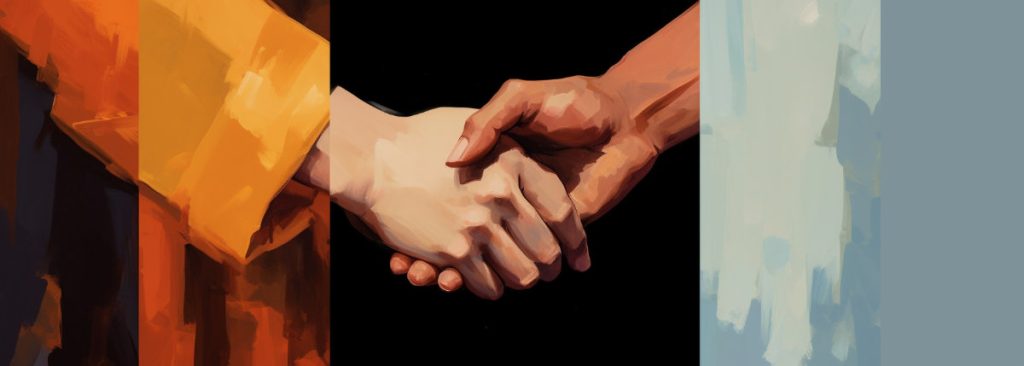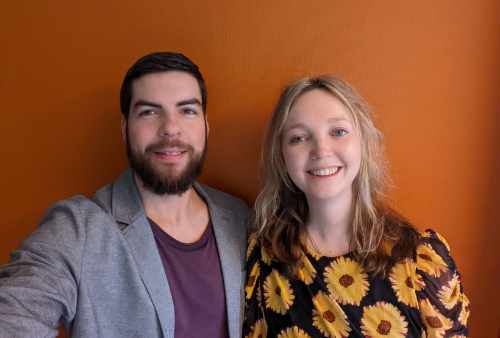Choosing the right guide or facilitator is crucial in planning a psychedelic session. But what type of sitter is best suited to help you navigate these non-ordinary states? From shamans to therapists and friends, each category brings unique strengths and limitations.
More so than any title, you want to look closely at the individual’s specific skills, experience, values and approach to determine fit. There’s great diversity even within roles. An open-minded therapist may outperform a dogmatic shaman for one’s needs.
Key qualities to seek in any guide are compassion, ethics, adaptability, knowledge of psychedelics, and a passion for transformational work. Experience working with trauma is often also a big plus. Having shared worldviews around spirituality helps too.
While certain backgrounds signal areas of expertise, have in-depth conversations to gauge if a guide’s style aligns with your needs and intentions. With this profound work, a resonant heart connection overrides credentials alone. Let’s explore the contours of different guiding paths.
Shamanic Facilitator
Shamans have a long tradition of guiding psychedelic journeys through rituals that access non-ordinary states of consciousness. Originating largely in indigenous cultures, they utilise master plant medicines coupled with ancestral music, chanting, and mystical practices to induce visionary experiences.
Many operate according to a cosmology that views psychedelic plants as endowed with consciousness and spirit. The shaman builds an intimate relationship with plant allies, who offer teachings and energy healing. They see themselves less as therapists than conduits for transpersonal wisdom.
Shamanic-led psychedelic sessions often involve elaborate ceremonies, altars, and a sense of communion with unseen forces. The shaman may practice ritual purification beforehand, like smudging or energy clearing. They set a mystical ambience.
Those drawn to shamanic psychedelic work value a spiritual framework for self-inquiry and healing. Outcomes like forgiveness, connecting to nature, and reconciling with death feel congruent. Powerful experiential rituals can complement talk therapy approaches.
However, some shamanic techniques may feel too woo-woo or ungrounded for secular seekers. And reliance on plant consciousness rather than psychological principles leaves less room to address mental health issues. But for many, shamanism’s heart-centred earth mysticism resonates.

Healer as Facilitator
Psychedelic guides from various healing arts, like herbalism, bodywork, energy healing, etc., offer a holistic approach to self-inquiry and transformation. Their array of modalities supports integration on mental, physical and spiritual levels.
Many plant-focused healers work with indigenous medicines like peyote, ayahuasca and iboga to purge, expand consciousness and reconnect with nature. Breathwork, somatic therapy and meditative music may enter as well. The focus is aligning mind-body-spirit.
Healing psychedelic sessions have an aura of sacred ritual but are less rigidly ceremonial than some shamanic approaches. The setting fosters openings, catharsis, gaining insights on health issues. Guides act as compassionate companions on the journey.
For those wanting to use psychedelics to gain clarity on lifestyle, relationships and deeper meaning, healers provide diverse tools to integrate all facets of life. Holistic well-being matters most. Mainstream therapy models may seem cold.
However, psychedelic healing work leans more spiritual than clinical. Those needing structured treatment plans may feel aimless. For some, discussions of energy and intuition don’t resonate as strongly. But an open-minded holistic approach offers much.

Coach as Trip Facilitator
Psychedelic coaches [like we at FLO coaching] usually take goal-oriented approaches, helping clients achieve targeted personal growth and performance outcomes through guided psychedelic sessions. Coaches draw from various modalities.
Some follow a disciplined process-based framework before, during and after trips to spur transformation. Practices like intention-setting, mindfulness, cognitive behavioural techniques (CBT/ACT), and journaling help manifest visions into reality.
The emphasis is practical life enrichment, whether healing trauma, enhancing creativity, interpersonal skills, or finding purpose. Coaches guide clients to accept experiential wisdom and manifest insights through accountability.
Seekers who want structured self-improvement from psychedelics resonate with coaching approaches. The pragmatic focus on results beyond transient mystical states appeals to goal-oriented personalities.
However, some view coaching models as overly clinical for psychedelic work. Reliance on behavioural change theories leaves less room for emotional catharsis or deviations from the protocol. But structure and support help many flourish.

A Certified Therapist Guiding You
Licensed psychotherapists trained in psychedelic-assisted techniques offer in-depth support for addressing mental health conditions and psychological growth through guided trips.
Therapists draw heavily on their psychiatry, clinical psychology and social work expertise. Many personalise with humanistic modalities like motivational interviewing and acceptance commitment therapy.
The focus is clinically supported outcomes like reduced depression, post-traumatic growth, breakthroughs around trauma, addictions and end-of-life distress. Therapists leverage professional diagnosing and treatment skills.
Therapist-guided psychedelic treatment provides validated approaches for those with defined mental health needs. The clinical foundation offers confidence. And knowledge of medications prevents complications.
However, some view the therapist label as too pathologizing for spiritual psychedelic use. And doctors may over-rely on clinical interventions versus emotional support during sessions. However, medical oversight has advantages for many.

Sitter Providing Guidance
Psychedelic sitters are companions whose primary role is to provide basic emotional support, safety and reassurance during sessions. They handle logistics and observation more than actively guiding journeys.
Sitters ensure proper set and setting conditions are maintained, keep an eye on dosage, hydration, body vitals, and gently redirect if anyone becomes disruptive or tries to wander off. Their presence itself comforts.
Many sitters have personal psychedelic experience but don’t consider themselves therapists or formally trained guides. They offer practical care more than prescriptive interventions during trips. Their energy anchors the space.
For informal or one-on-one sessions, an experienced sitter friend who can quietly observe compassionately may be ideal. Some see involved guidance as too intrusive or esoteric. Sitters subtly hold space.
However, reliance on sitters’ limited skill sets also has risks if medical or psychological crises emerge. And without integrative support, insights can be lost. But as an attendant to the experience, sitters have merits.

Friend Helping Facilitate
Having a trusted, psychedelic-experienced friend guide your journey can provide comfort through shared understanding. The rapport allows vulnerability without pretence.
Friends as sitters offer a lightweight approach focused on open listening, calm reassurance, attention to basic needs, and ambient music curation. Their care arises from personal connection.
The mutual warmth and understanding between friends creates a natural container for exploration, without formal trappings. There’s an ease in discussing the profundities and absurdities that emerge.
For simple home sessions purposefully avoiding “therapist vibes”, a like-minded friend can be ideal. The casual intimacy and care between equals resonates. Laughter helps when things get weird.
However, friends likely lack training in trauma, mental health disorders, bodywork, and specific guiding protocols. In crises, their abilities may fall short. But good friends know how to hug you through the strange times.

What Matters Most in Choosing a Psychedelic Facilitator
When seeking the ideal guide for your psychedelic journey, there are many factors to consider beyond just credentials on paper. Titles alone reveal little about an individual’s compassion, adaptability and guiding style in action.
While categories like shaman, healer, therapist, coach and sitter suggest areas of specialisation, there is immense diversity within each realm based on each facilitator’s personal qualities, expertise and values.
Rather than fixating on labels, have candid conversations to determine if someone’s background and approach feels aligned with your needs and intentions for the experience. Attune to whether their energy instils trust and comfort.
No guide appeals to everyone. A rigid shaman may frustrate those seeking emotional support versus ritual while free-flowing healers can seem scattered to goal-driven types. Therapists may feel too clinical and friends too casual.
What matters most is choosing someone you feel safe with to help realise your psychedelic goals, whatever shape they take. With sensitive trust and care on both sides, profound journeys unfold. The rest are just details.


